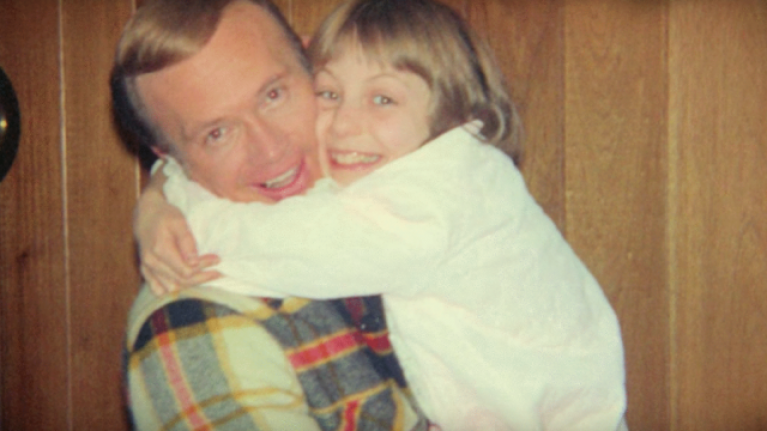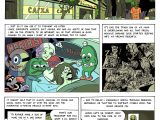
‘Abducted in Plain Sight’ Is the Craziest True Crime Documentary on Netflix
February 1, 2019To paraphrase Tyra Banks, I have never IN MY LIFE yelled at a television like I did while watching Abducted in Plain Sight. Here is a partial list of things I screamed during its 90-minute runtime:
- “Why??”
- “He jerked him off??”
- “Why would you let him sleep in your daughter’s bed??”
- “What??”
- “Call the fucking FBI!!”
- “How can there be 40 minutes of this movie left?? What else could possibly happen??”
- “Nooooo!!”
The documentary is essentially a story about manipulation. Which can be an incredibly powerful thing. People have been manipulated into pushing a stranger off a building, stabbing a friend, and allegedly assassinating a public figure. But even knowing the degree to which people are susceptible to being controlled by external forces, I found it impossible to understand or empathize with the actions of the family at the center of Abducted in Plain Sight.
I don’t want to spoil the film by getting into too much detail on the many, many outrageous things that happen in it. So, without giving too much away, I will say it's a documentary about a girl who gets kidnapped by a child molester named Robert Berchtold. Twice. It involves aliens, arson, a fake therapist, Mormonism, and the world’s most ill-advised handjob. It is one of the wildest, most frustrating films I have ever seen.
The film first first hit the festival circuit back in 2017, but has gotten renewed attention since being added to Netflix at the start of the year, with hundreds of people tweeting some version of this tweet in the last few weeks:
I spoke with Skye Borgman, the film’s director, producer, and cinematographer, to find out more about the production process, and how the Brobergs, the family at the center of the film, feel about the finished product. I also learned during our chat that Bob Broberg passed away last November.
The conversation has been edited for length and clarity, and contains major spoilers for Abducted in Plain Sight:
VICE: How did you find the story?
Skye Borgman: The Brobergs wrote a book in the early 2000s. I was completely shocked by all of it and I really wanted to figure out how something like this could happen.
You said you wanted to figure out how something like this could happen. I don’t mean to suggest you failed as a documentarian, but, watching it, I was just like, What are these people doing? Do you think you came out of it with more of an understanding than you went in with?
Yeah, for sure. For sure I came out with more of an understanding than I did going in. And that’s primarily due to the fact that both of the parents' sexual affairs were left out of the book.
Right.
And as soon as I found out about those two affairs—I don’t want to say it made sense, but I could kind of understand how shame and denial were really used to blackmail them. And that started to make a lot more sense to me. I still feel like there were a lot of different elements that came into their world. I think their religion, the fact that they trusted so completely, played a huge part in them making some of the decisions they made.
How Mormon were they, and how do you think that played into what happened?
They’re very committed to the LDS Church. They were then, they are now. I think it played a very large role in their beliefs at the time, I also feel like it's part of what kept them together as a family. And even to this day, you know, talking to them, they still choose to trust people. They would rather trust people than distrust them, even considering everything that happened. It’s certainly something that was, I think, the pathway to opening them up to a perpetrator really infiltrating their family.
They seem like very nice people. Was it difficult for you to be in the room and interview them [and] not judge their decisions too harshly?
The interviews were brutal. I mean, for everybody involved. There was a lot of emotion in the room, and they were long. I think really for me it wasn’t so much during the interviews where a lot of judgement came in on my part. It was really during the editing process. There were times when I really judged them, there were times when I really didn’t judge them. There were times when I judged Berchtold, there were times when I didn’t judge Berchtold. There were times when I really cared so deeply about them, and then I didn’t care deeply about them. I went through all of these different emotions and different levels of understanding throughout the editing process.
Have you spoken to the family since the film was completed? Have they seen it?
Yes, they have seen it.
How did they feel about it?
You know, they’re remarkably grateful. I really believe that it was cathartic for them. They’ve been carrying this story around for many, many years. They’ve been carrying the guilt around for many years, they’ve been carrying the shame around for many years and I think I honestly believe that their true intention is to tell the story so that they can hopefully save somebody else’s life and prevent this from happening in the future. Watching the film they came up to me afterwards and told me how grateful they were that the film was out there. Even today Mary Ann posted something on my Facebook page. Basically something to the same effect, that the film was out there and hopefully saving lives. I cannot imagine revealing so much on camera if that wasn’t someone’s intention, if they weren’t trying to do something bigger.
They seem to be very candid about some things they’ve done that are incredibly difficult to understand. Did the family watch it with an audience at a screening?
Yes. There was a film festival in St. George, Utah: DOCUTAH. They’d watched it on their own, we had sent them a link to it. But the first time we were able to experience it together was in a theater full of 500 people, and it was nerve-wracking to say the least. But Bob came up to me afterwards to say how grateful he was that we had stuck with it, that we had told their story in what they had believed was a pretty authentic way.
Were there vocal reactions from people in the audience during that screening?
Oh yes! Every single screening we’ve had there have been intense verbal reactions from people in the audience.
Was it awkward having that happen knowing that the family were in the room?
Yeah, it’s awkward, but that was a friendly audience, it was their hometown. I think [the film] encourages this communal experience. People really wanna talk about it, people really want to share. It sticks with people, and they’re frustrated by it and they’re curious about it and they’re completely conflicted about it, and some people aren’t. Some people are not at all conflicted by it. But I think that that’s part of this film is this shock and then sharing that either in an audience or online, I mean there’s been a lot going around online and people talking about it.
Yeah, I ended up watching the film because a friend of mine texted and was like—
“What the fuck, you gotta see this”?
Right. And I paused it maybe half an hour in to text four other people and be like, “Stop everything, you have to watch this.”
What do you think it was when you were watching where you had to text your friends and say, “You’ve gotta watch this”? That it’s just so unbelievable?
It’s not that it’s unbelievable, so much as it’s completely impossible to understand the motivations of anyone.
Yeah.
And then, obviously, there’s certain outrageous things that happen within the film. I think everybody that I just mentioned texted some version of Oh my god, the dad jerked him off.
I know.
I imagine if you were watching it in a room full of people it would probably get vocal.
It was really interesting the first time we screened it with an audience because it was at that moment in the car where the audience burst out in laughter. And I was so surprised by that. And then that reaction continued in every screening we had. And it was very interesting to me because I’d never really expected that to happen but it was a very consistent reaction and I think it was that people were so surprised and so uncomfortable that there was nothing left to do but just laugh.
Yeah. I think that’s what it is. Because, obviously, what is happening is not funny.
Right.
I assume the reaction has probably been different from the Netflix audience compared to the festival audience, right?
It’s interesting, because I think the knee-jerk reaction has been very sort of negative towards the parents and that’s very clear. The comments that people are posting are very much about that.
Do you feel protective of the family when you see something like that?
I do. Yeah. So, Bob Broberg died like, a month and a half ago. [The family has] heard a lot of it before, probably not to the scale they’re hearing it now with all the attention we’re getting, but they have been prepared for it. I think the hardest thing is really that Bob passed away and I’m glad that he’s not seeing the comments that are coming out.
Yeah, that’s really difficult to have to deal with [the film] getting this second wind on top of that.
Right.
Are there any other updates on the family? Has anything else changed with them since you completed the film?
No. I mean, they’re doing well. It’s hard for them to be thrust into the spotlight for this, but they’re still committed to trying to get the word out there and to let people know that predators are out there and they take advantage of the weak and the naive and the gullible and I think, really, the message they want people to know is that anyone can be conned. I don’t know if that’s necessarily true but they certainly feel that way, and they want that message to get out there.
Yeah. I don’t want it to look like I’m just completely shitting on the parents. I feel very bad for them, but it’s also very difficult not to be angry at them while you’re watching.
I know.
And I definitely respect them putting themselves out so publicly to talk about this when they obviously are aware what kind of a response it’s going to get.
Yeah, I think they’re very brave to do it because they have been through it before when they first wrote the book. I have a lot of respect for them, I think they’re very brave people. I think they could’ve done more to protect their daughter, no question about it. But at the same time, I think they’re doing something now and I think the intentions behind it are very noble.
When I just searched for the film on Twitter there were a lot of memes that people had made, are they something that you can appreciate? Or do you feel too close to the story and the family to really enjoy those?
Some of them I can really appreciate. And it’s really the ones that are just sort of shocked faces saying, what?! what?! what?! Because I think that’s a lot of what I felt was important was that this family felt completely bombarded with all of these different things that were happening to them. So bombarded that they completely lost sight of their children, and I wanted the film to feel that way. I think that’s probably not far off from how these parents were feeling at the time that there was just so much stuff being thrown at them that they just had no idea what to do and how to feel. So I can certainly appreciate some of the memes that are out there, yeah, and maybe in a way sort of get a laugh out of it. It does provide a little bit of levity, which I can appreciate.
Sign up for our newsletter to get the best of VICE delivered to your inbox daily.
Follow Jamie Lee Curtis Taete on Instagram.


